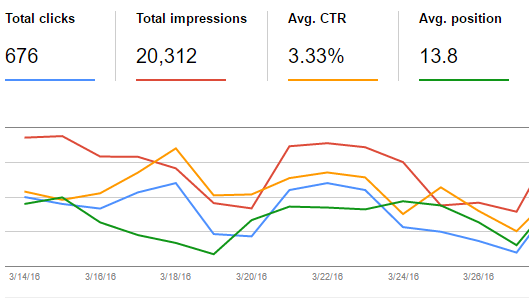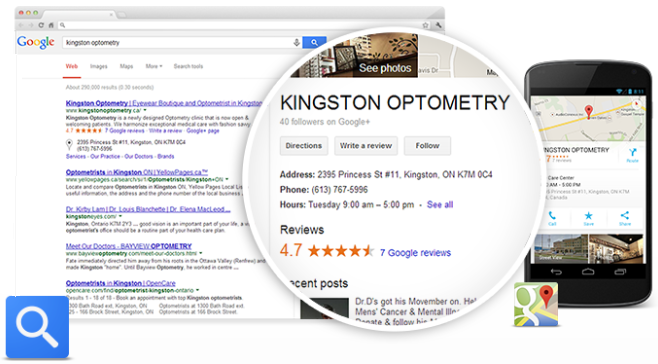
 Has this happened to you? Did it make your blood boil? Well, you’re not alone. This does happen, and it’s definitely a very aggravating thing to experience. You are, however, not powerless: you can take action.
Has this happened to you? Did it make your blood boil? Well, you’re not alone. This does happen, and it’s definitely a very aggravating thing to experience. You are, however, not powerless: you can take action.
Although it’s rare, it can happen in the organic search results. Organic refers to the non-paid listings on the main part of the search-results page as opposed to the advertising listings seen at the top or side.
You might find your competitor’s website showing up in the organic listings for your company name if they write about your company, and their website has some SEO heft behind it. Perhaps a competitor has produced a side-by-side comparison of your product versus theirs (biased of course), or perhaps they’ve taken advantage of some unlucky bad press you’ve received by writing a blog article about it.
When It Happens In The Organic Search Results:
Good news – there’s something you can do about it. Assuming what they’ve written about you isn’t legally actionable, such as being slanderous, your best course of action is to take full control of the first page search results for your company name. To do this, you’ll need to develop a SEO plan geared for this purpose – a plan that involves specific strategies such as:
- Make your website’s search result as big as possible by encouraging sitelinks.
- In addition to your website, ensure all your other web properties are present, such as your social media pages.
- Promote the pages of other websites that are favorable to your brand, such as positive press and reviews.
When It Happens In The Advertising Search Results:
If another company is using one of your trademarked terms in their AdWords advertising, that is an infringement of your rights, and it’s prohibited by Google’s AdWords policy. Google recommends you reach out to the other company in an effort to resolve the issue. If that doesn’t work, Google will accept complaints and action them.
Before you start this process, ask yourself “Are they really infringing on my trademark?” If their ad is showing up in the paid search results for a search on your company name, it may be because there are words in your company name, other than your unique identifier, that are triggering the ad. For example, a search for “Superstar Ottawa Plumbing” will trigger ads for companies bidding on the term “Ottawa plumbing”. In this case, these companies aren’t doing anything wrong.
Blatant Shenanigans?
In some cases, however, your competitor’s AdWords ad actually names your company in the title of the ad. This is enough to make anyone angry, but consider the following before you declare all-out war. This seems like blatant shenanigans, and it might be, but more often than not it’s a Google-system-generated misunderstanding. Let me explain. There’s a feature within AdWords that, when set up by the AdWords user, will automatically place the phrase used by the searcher within the ad title. For example, a search for “Superstar Ottawa Plumbing” triggers an ad for a company bidding on the term “Ottawa plumbing” and, because of their AdWords configuration, “Superstar Ottawa Plumbing” is placed in the title of their ad. Presumably this is unintentional. The AdWords user probably wanted this in place for terms such as “faucet plumbing Ottawa” and “toilet plumbing Ottawa” without going through the effort of individually targeting all the possible terms with uniquely written ads. In this case, a friendly letter to the competitor requesting that your unique identifier, “Superstar”, be added as a ‘negative keyword’ would solve the problem, assuming they take the time to do it.









